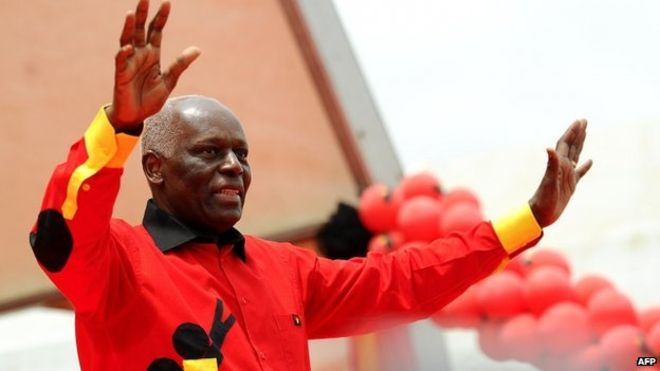PBS: Escaping Eritrea … [Read More...] about ካብ ውሽጢ ቤት ማእሰርታት ኤርትራ
Decision by Dos Santos to step down is good for Angola and for Africa
MARCH 11 is a date that is memorable for a lot of things. According to the low chronology of the 18th dynasty, Pharaoh Thutmose III died in 1425 BC on this day. Menachem Begin and Anwar Sadat signed the Camp David Peace Accords, bringing peace between Israel and Egypt on this date in 1982.
A few years ago, Fukushima in Japan was rocked by an unprecedented earthquake and tsunami on March 11th. Last week, on this date, longstanding president and Angolan liberation leader José Eduardo dos Santos announced that he would be stepping down at the end of his current presidential term.

While this might not be as historic as Thutmose’s death, or the Camp David Peace Accord, or as earth-shaking as the earthquake in Fukushima, this date could well become etched in history for Angola and Africa. Dos Santos’s decision to step down continues a notable trend on the continent — more and more African leaders are choosing to hand over power rather than hanging onto power by any means necessary.
In 2001, when I started paying close attention to democratic transitions on the continent of Africa, there were 11 democratically retired African heads of state and government. Today there are more than 40 and by the end of the decade there will be more than 50. That dos Santos adds his name to the number is a good thing.
Some will lament, “what took him so long”? After all, by the time he retires, he would have been in office almost 40 years.
I say better late than never. Whatever the timeframe, it is an example worthy emulating by the likes of Kabila, Kagame and Museveni. If Dos Santos is willing to give up the accoutrements and trappings of power, then who shouldn’t?
That he is choosing to step aside is good for Africa and Angola for a number of reasons. It is good for Africa because history has shown that peaceful transitions are the best guarantor of stability and prosperity. Angola is Africa’s second-largest oil exporter, after Nigeria, the prospect of long-term stability in Angola is good for the region and the continent. With Angola’s transition to democracy the whole southern region of Africa would be anchored by truly democratic states. Likewise, it furthers the trend toward democratisation on the continent’s west coast as well.
In terms of Angola, this is a case of what’s good for the goose is good for the gander, the goose being Africa and the gander being Angola. Dos Santos’ departure puts this country on a track to stability that will serve it well for years to come.
In a few words, accountable government is going to be nothing but good for Angola. With a more open system of governance there is a greater opportunity that there will be a more open economy. A more open economy increases the chances for the sort of creativity and dynamism that will stimulate the depth and breadth of growth that spreads the wealth, creating a more prosperous and stable country.
Is this transition a panacea for all that ails Angola? The short answer is no. But leadership transitions, in a constitutionally proscribed manner, and accountable government are just what the doctor ordered for a whole and healthy country. Good luck Angola. Congratulations to His Excellency Eduardo dos Santos for the statesman-like stance.
• Stith, a former US ambassador to Tanzania during Bill Clinton’s second term, established and currently directs Boston University’s African Presidential Centre, which is launching its first centre in Africa in partnership with the University of Mpumalanga.
